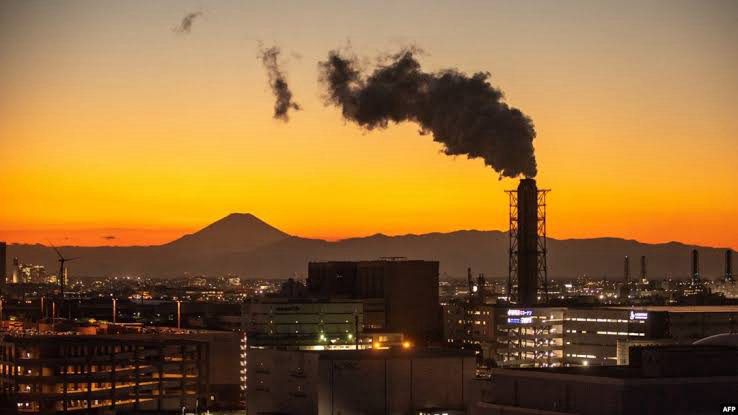Japan’s Bold Strategy for Decarbonization and Economic Growth
In a major step towards sustainability, the Japanese government has approved a long-term climate, energy, and industrial policy framework extending through 2040. This comprehensive plan aims to reduce greenhouse gas (GHG) emissions, boost renewable energy adoption, and strengthen Japan’s industrial competitiveness while ensuring a stable energy supply.
Key Highlights of Japan’s 2040 Climate and Energy Strategy
- ✔ 60% Greenhouse Gas Reduction by 2035 and 73% by 2040 compared to 2013 levels
- ✔ Renewable energy to contribute up to 50% of the electricity mix by 2040
- ✔ Nuclear power to provide 20% of Japan’s energy to support clean energy goals
- ✔ Integration of decarbonization with industrial policy to develop green technology clusters
- ✔ New nuclear reactor construction planned to ensure stable energy supply
Japan’s Greenhouse Gas Emissions Reduction Goals
Under the new Nationally Determined Contribution (NDC), Japan has committed to reducing GHG emissions by 60% by 2035 and 73% by 2040 from 2013 levels. This builds upon the previous 2030 target of a 46% reduction.
Despite public demand for more aggressive cuts, the government finalized these targets without changes, citing deliberations with climate experts and industry stakeholders. Japan plans to submit these new commitments to the United Nations under the Paris Agreement this month.
Challenges in Meeting Japan’s Climate Targets
- Heavy Reliance on Fossil Fuels – Japan remains one of the top five carbon emitters globally, with limited domestic energy resources.
- Slow Nuclear Power Revival – Post-Fukushima disaster (2011), nuclear power usage has dropped to 8.5% of Japan’s energy mix (2023).
- Offshore Wind Energy Struggles – High costs and inflation have led companies like Mitsubishi Corp to reconsider wind energy projects.
- International Policy Uncertainty – U.S. withdrawal from the Paris Agreement under Donald Trump raises concerns about global cooperation on renewables.
Japan’s Energy Policy Shift: Renewables and Nuclear Power
To achieve its carbon neutrality goals, Japan’s revised Basic Energy Plan focuses on a balanced energy mix:
- ✔ Renewables (Solar, Wind, Hydro, Biomass): 40-50% of total electricity generation by 2040
- ✔ Nuclear Power: Increase to 20% to reduce dependence on imported fossil fuels
- ✔ Hydrogen and Green Technologies: Expansion of low-carbon solutions to support energy transition
Unlike previous policies that aimed to minimize nuclear power usage, the new 2040 energy roadmap calls for building next-generation nuclear reactors to maintain a reliable power supply.
Japan’s Industrial Policy: Green Technology and Economic Growth
To integrate decarbonization with industrial development, Japan is planning to:
- ✔ Create green industrial clusters in regions with abundant renewable and nuclear energy
- ✔ Invest in hydrogen and carbon capture technologies to drive clean energy innovation
- ✔ Support industries affected by energy transition, ensuring economic stability
Impact of Japan’s 2040 Energy and Climate Strategy
Benefits of the New Policy
- ✅ Stronger energy security through diversified clean energy sources
- ✅ Reduced carbon footprint, meeting global climate commitments
- ✅ Economic growth via industrial investments in green technology
- ✅ Improved air quality and public health benefits
Potential Challenges
- ❌ High costs of renewable infrastructure and nuclear expansion
- ❌ Public skepticism about nuclear safety after the Fukushima disaster
- ❌ Geopolitical uncertainties affecting global energy policies
Conclusion: Japan’s Roadmap for a Sustainable Future
Japan’s 2040 climate, energy, and industrial policies reflect a bold vision for sustainability and economic resilience. With a focus on renewable energy, nuclear power expansion, and industrial innovation, Japan aims to balance decarbonization with economic growth. However, challenges such as high renewable energy costs, nuclear safety concerns, and global policy shifts could impact implementation.
As Japan moves forward with its green transformation, businesses, policymakers, and global investors will closely watch how these policies shape the future of clean energy, industrial growth, and environmental sustainability.
















